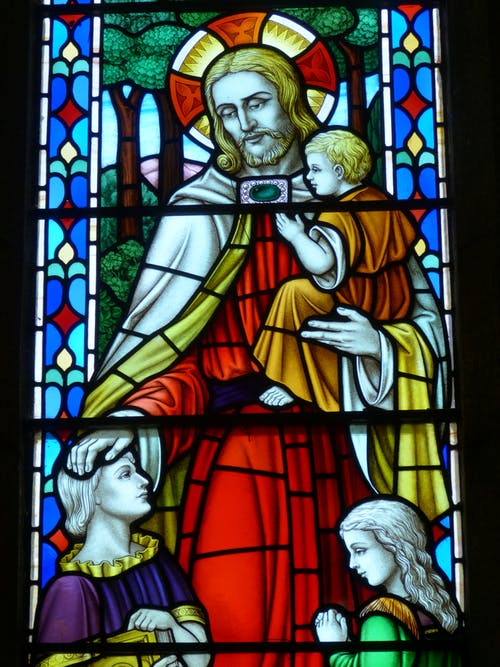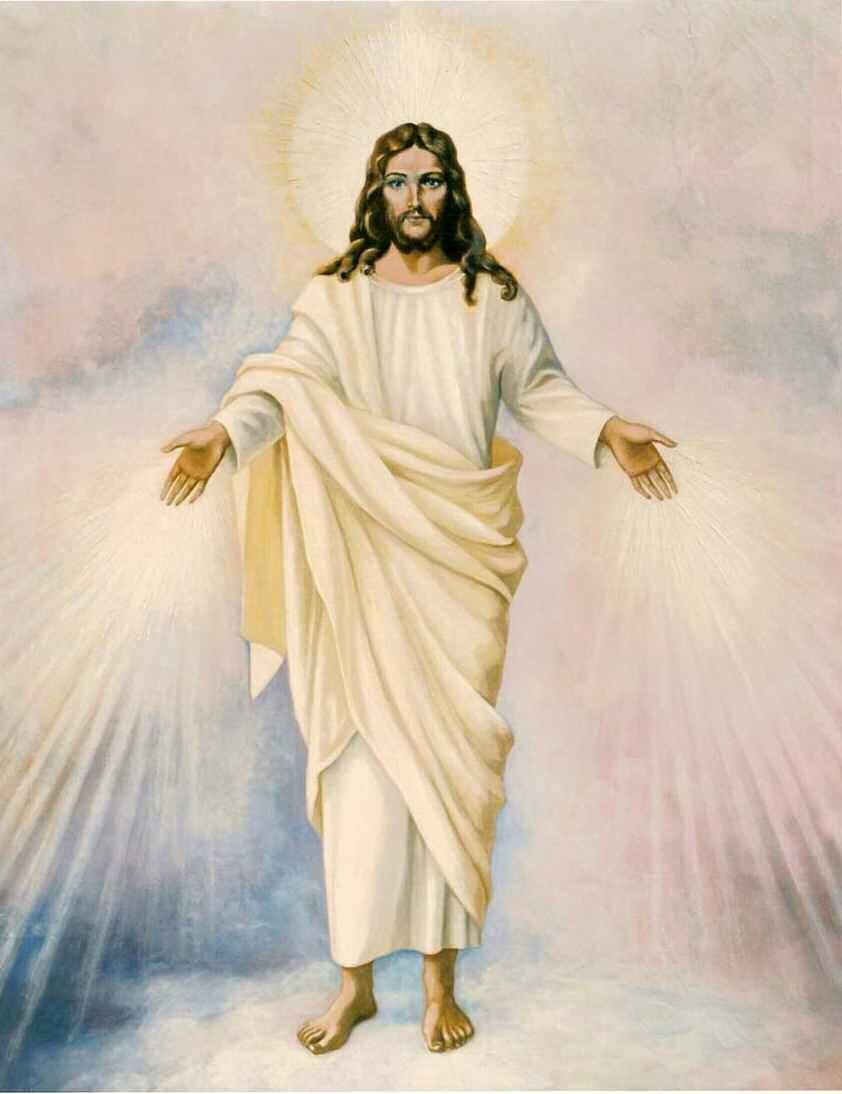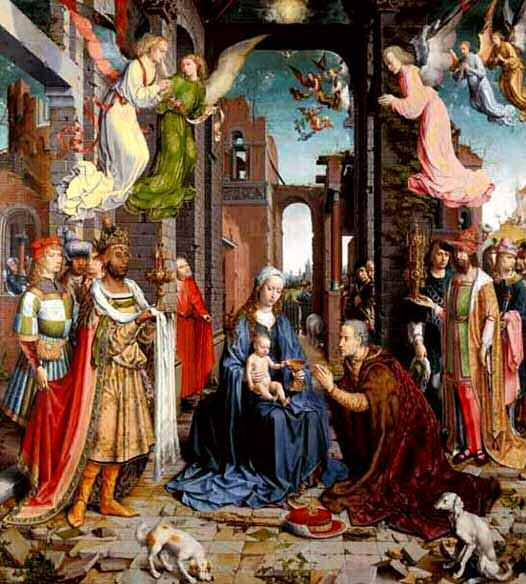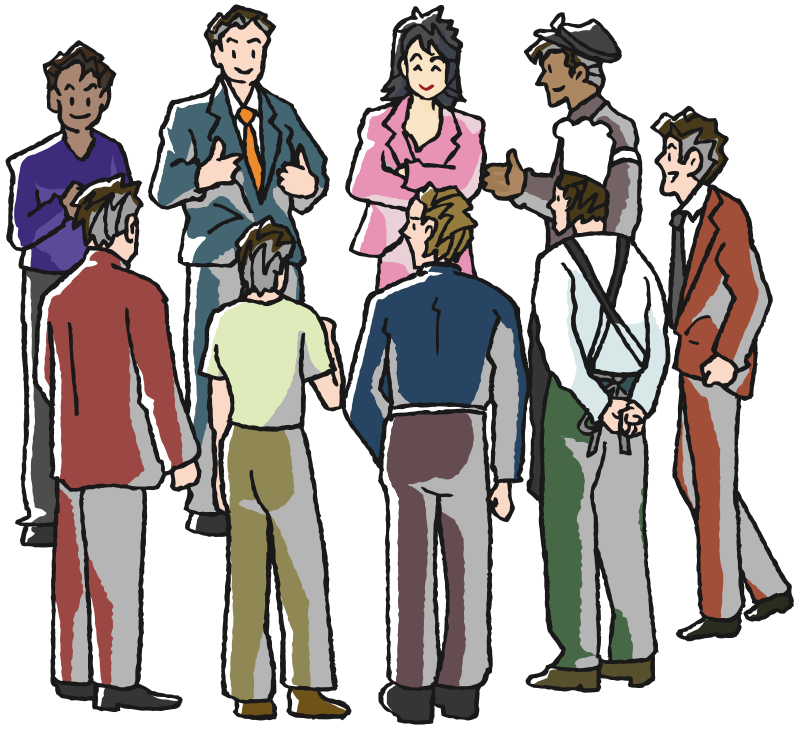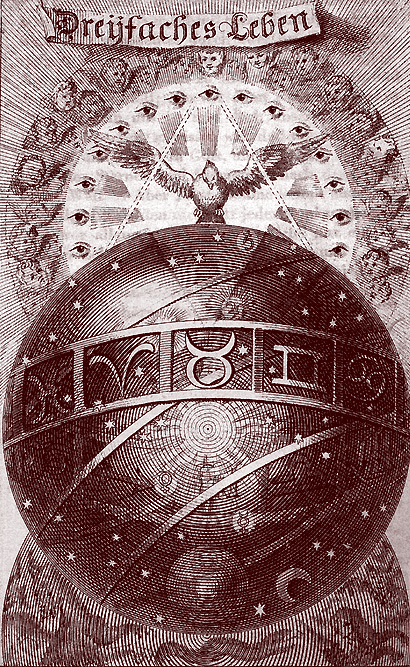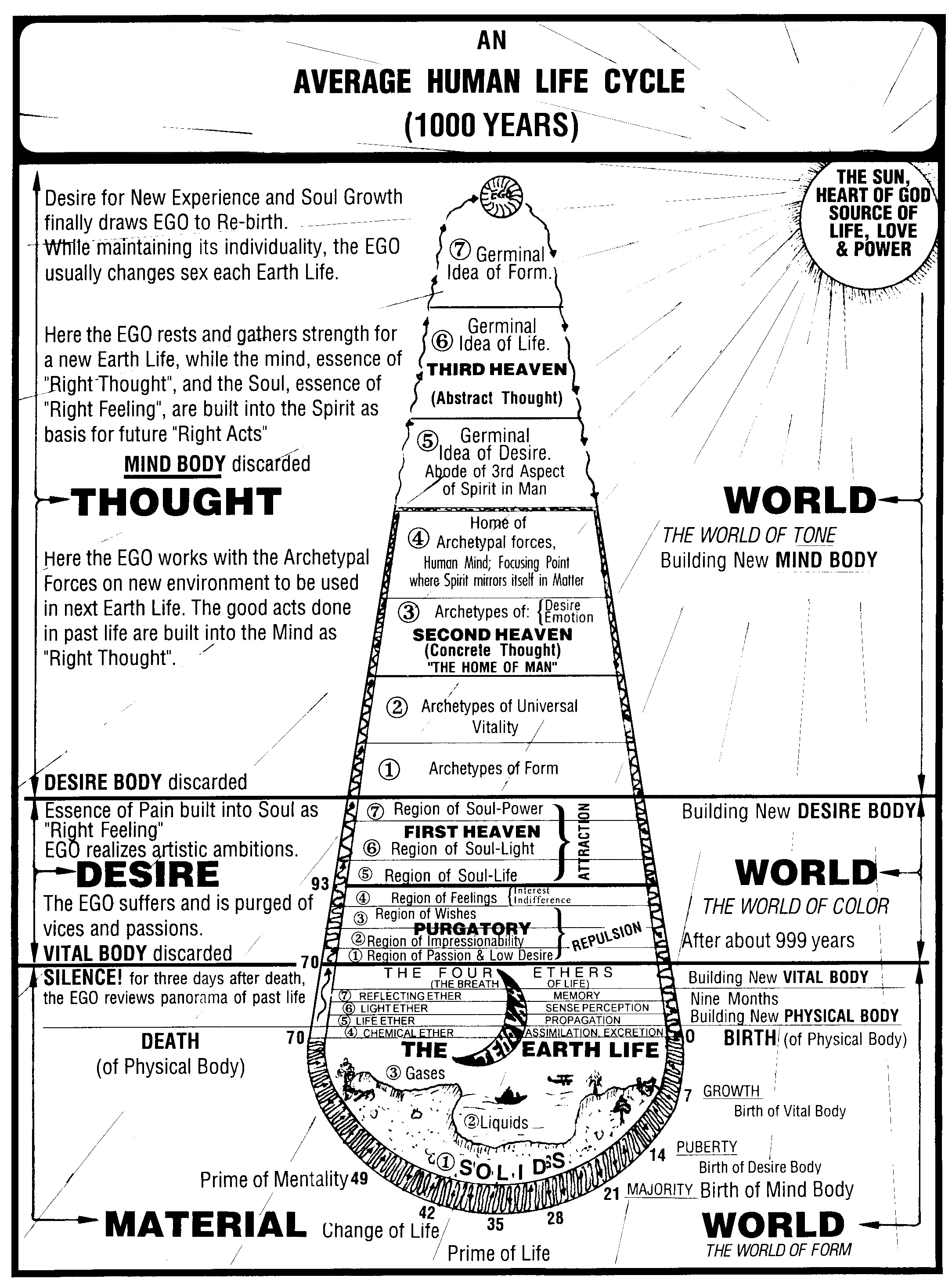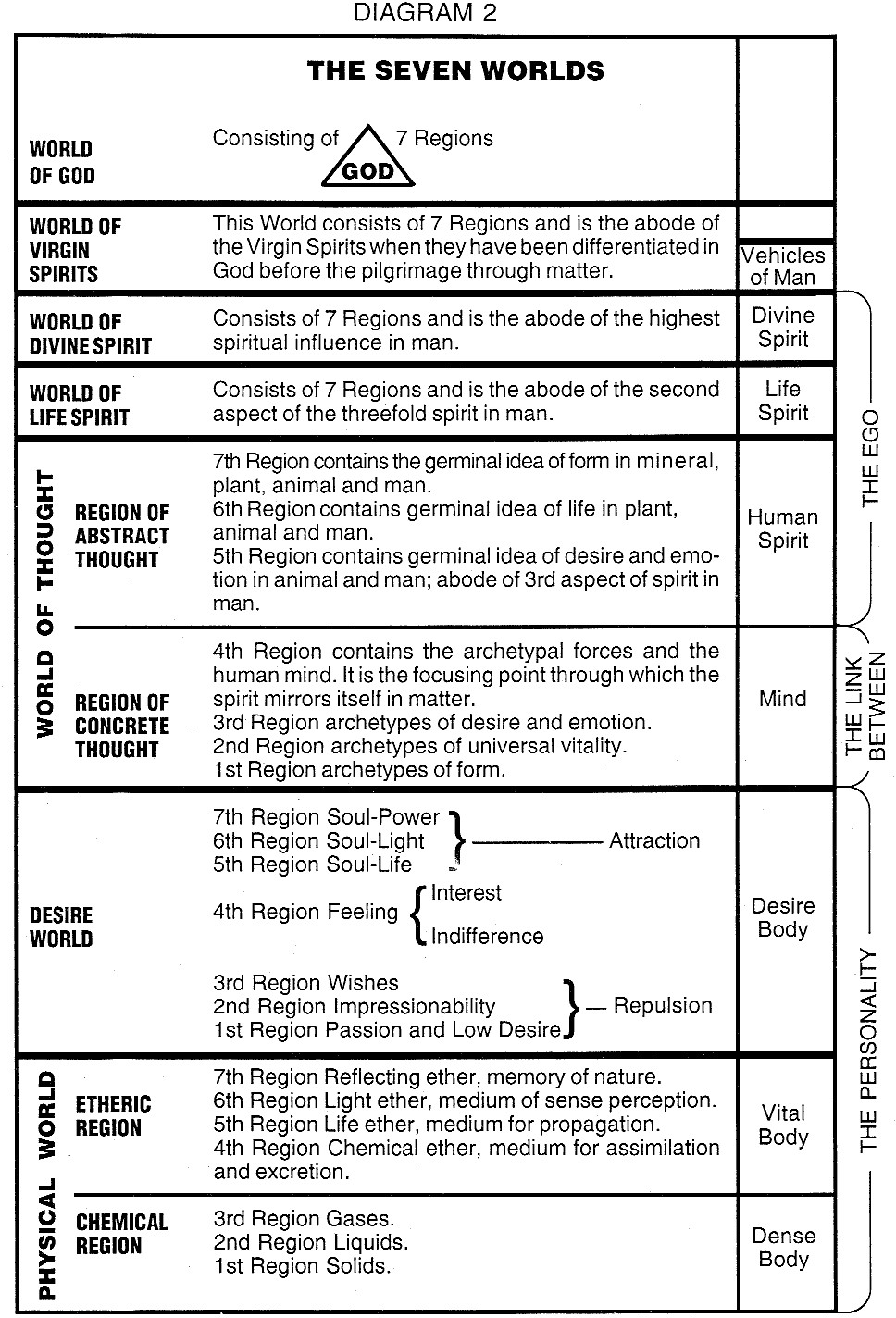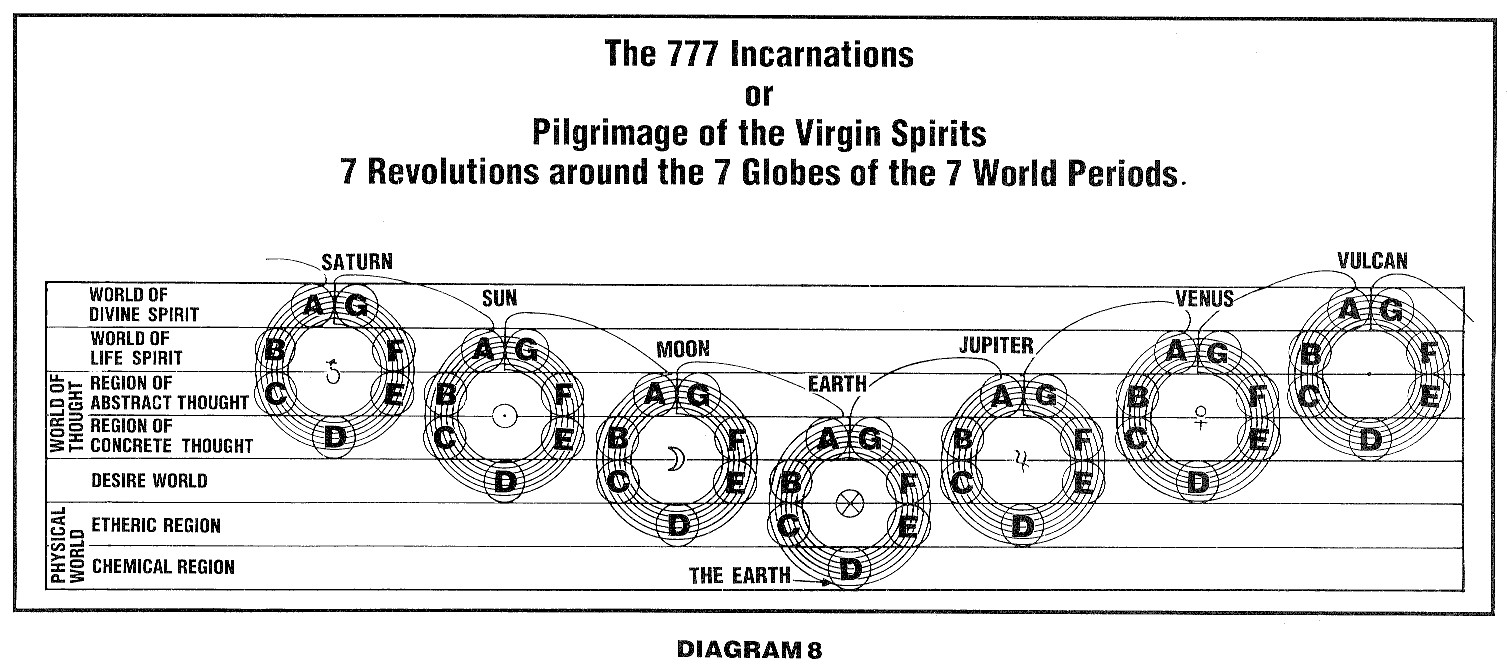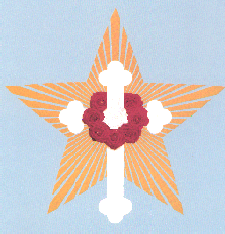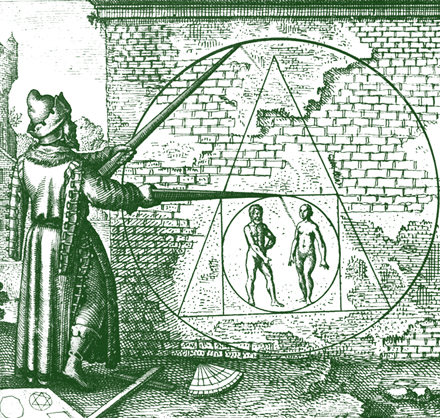 "Question: Why do children die? (Vol. I, #51)
"Question: Why do children die? (Vol. I, #51)
Answer: There are many causes for the death of children. We will give a few of the principal ones. In the first place, when an Ego returns to Earth life, it is drawn to a certain family because it can there get the environment which is calculated to further its progress, and where it may liquidate a certain amount of the fate generated by itself in previous existences. Then when parents make such radical changes in their lives that the Ego would not be able to get that experience, or liquidate that fate, the Ego is usually withdrawn and sent to another place where it may get the right conditions for its growth at that time. Or it may be withdrawn for a few years and reborn in the same family when it is seen that the conditions can be obtained there at that late time. But there is a cause that is responsible for infant mortality which lies much farther back, namely, in previous lives, and to understand this cause it is necessary to know something about what takes place at death and immediately after.
"When a spirit is passing out of the body, it takes with it the desire body, the mind and the vital body, and the vital body is at that time the storehouse for the pictures of the past life. These are then etched into the desire body during the three and one-half days immediately following death. Then the desire body becomes the arbiter of man's destiny in Purgatory and the First Heaven. The pains caused by expurgation of evil and the joy caused by the contemplation of the good in life are carried over to the next life as conscience to deter man from perpetuating the mistakes of past lives and to entice him to do that which caused him joy in the former life more abundantly.
"When those next of kin to a dying person who are present in the death chamber burst into hysterical lamentations at the time the spirit passes out, and keep that up for the next few days, the spirit which is at that time in exceedingly close touch with the Physical World will be much moved by the grief of the dear ones, and will not be able to focus its attention closely upon the contemplation of its past life, and thus the etching made in the desire body will not be as deep as it would if the passing spirit were left in peace and undisturbed. Consequently the sufferings in Purgatory will not be as keen nor will the pleasures in the First Heaven be as great as otherwise and therefore, when the Ego returns to Earth life, it will have lost a certain part of the experience from the previous life. That is to say, the voice of conscience will not speak with the same emphasis as would have been the case had the Ego been left undisturbed by lamentations.
"In order to compensate for this lack, the Ego is then usually brought to birth among the same friends who lamented over it, and it is then taken away from them while yet in the years of childhood. Then it enters the Desire World, but, of course, a little child has not committed any sins that need to be expurgated and so its desire body and mind remain intact; it then goes directly into the First Heaven to wait until a new embodiment offers, but this waiting time is used to school it directly in the effect of the different emotions, both good and evil. And often a relative meets it and takes it in charge, having the task of teaching it that which it had lost through the lamentation that person indulged in, or else it is taught by others. At any rate, the loss is more than made up, so that when the child returns to the second birth it will have as full a moral growth as it would have had under ordinary circumstances, had there been no lamentation at the time when it passed out." ...MORE »
- No Beginning to Man; The Flesh & Blood of Christ; Effect of the Moon on the Invisible Helper »
- Need for Physical Vehicles; Time of the Entrance of the Spirit into the Physical Body; The Events in Purgatory »
- Alternating Male & Female Embodiments; The Unequal Status of Women; The Practical Uses of Esoteric Knowledge »
- How the Length of Life Is Determined; Reducing the Interval Between Earth Lives; Why Children Die; The Effects of Cremation Upon the Physical Body »
- The Three Kinds of Memory; Avoidance of the Post-Mortem Purgatorial Experience; Why We Don't Remember Previous Lives »
- The Number of Human Beings In the Rebirth Cycle; Verifying the Reality of Rebirth; Transmigration — Fact or Fallacy?; Reason for the Different Interpretations of the Bible; Work and History of the Angels and Archangels »
- Another Look at the Creation Story In Genesis; The Biblical Fall of Man; The Tree of Life »
- Cain and Abel; The Ark of the Covenant; Everlasting Salvation and Damnation — Fact or Fallacy?; The Immaculate Conception »
- The Star of Bethlehem; Differences Between Mediums and Clairvoyants; Spreading Higher Knowledge; How to Become an Invisible Helper; Purpose of Leaving the Physical Body »
- Clairvoyance of Children; Different Forms of Supersensible Sight; Various Methods of Acquiring Clairvoyance; The Best Time for the Concentration Exercise »
- Reviewing the Day's Events in Reverse Order — Why?; Dangers of Breathing Exercises; Origin of Comets; The Harmony of the Spheres »
- Praying to the Planetary Ambassadors; The Wisdom of Animal "Instinct"; Our Attitude towards the Animals »
- "Man, Know Thyself!"; The Story of the Holy Grail »
- Material Wealth and the Higher Life; Reuniting With Loved Ones After Death; The Effects of Embalming »
- Helping Friends Who Are in Purgatory; Our Responsibility to the Dead »
- Man's Responsibility to the Animals; The Rebirth of Children; Ripe Destiny »
- Infant Mortality; Fate or Free Will? »
- The Fruit of Evolution; The Rosicrucian Viewpoint on Capital Punishment; Judging Soul Age »
- Spiritual Aspects of Birth Control; Procedure with So-Called Incurable Diseases »
- Idiocy and Insanity; Removing Diseased Organs »
- Nature of White Blood Corpuscles; Food of the Future »
- People in the Desire World See the Sun; Contact With Deceased Relatives During Sleep; Nature of Creatures Seen in Delirium Tremens »
- Nature of the Desire World; Undines and Mermaids »
- Method of Spiritual Cognition »
- The Fourth Dimension; The Memory of Nature »
- The Tests of Initiation; Creating a New Body »
- Meaning of the Letters "I.N.R.I."; The Temple and the Priest's Robe; Spiritual Hermaphrodites »
- The Essence of Christianity; The Reason for Calling Christ "The Son of Man" »
- The Mission of Christ; Biblical Proof of Rebirth »
- The Nature of Jesus' Body After Death »
- The Time of the Aquarian Age »
- Egyptian Astrologers; Neptune, the Octave of Mercury; The Use of Astrology in Training Children »
- Why Mercury is Colorless and Neutral; The Balance of Joy and Sorrow »
- Planetary Polarity; Atlanteans Who Had Not Evolved Lungs; The Cause and Cure of Sleepwalking »
- Proving the Existence of the Vital (Etheric) Body; Prayer, Concentration, and Meditation »
- The Three Parts of the Silver Cord »
- The Mistake of Allowing Defective Children Die; The Results of Burning Incense »
- Mother Shipton's Prophecies »
- The Soul and Soul Body »
- The Nature of the Myth; The Cause of Inequality in Evolution »
- Rosicrucian Fundamentals in Questions and Answers »
- Effect of Death on Jesus' Dense and Vital Bodies »
- Psychic Development; Pre-Birth Panorama; Perfection of God »
- Condition of Animals After Death »
- Condition of Animals After Death (PDF)
- The Effect of Death on Jesus’ Dense and Vital Bodies (PDF)
- Spiritual vs. Psychic Development (PDF)
- Determining the Time of Easter (PDF)
- Rosicrucian Societies in America (PDF)
- Jesus and Christian Rose Cross (PDF)
- Reconciling the Teachings with the Bible — Postmortem Memories — the Value of Struggle (PDF)
- Morphine and Postmortem Consciousness; Sleepwalking: Its Cause and Cure (PDF)
- Morphine and Postmortem Consciousness; Sleepwalking: Its Cause and Cure (PDF)
- There Is No Death (PDF)
- The Blood of Christ and The Keys to Heaven (PDF)
- The Tree of Life, Earthbound Spirits, Proof of the Master, Co-Inherence, Deformities (PDF)
- Forgiveness of Sin; the Ego after Death; Helping the Dead; Esoteric Meaning of Judas (PDF)
- Initiations: Occult and Mystical (PDF)
- Mother Love as a Factor in Materialization; Max Heindel’s Health; Postmortem State of a Miser PDF) »
- The Reason for Christ's Violent Death; Is There a Last Day? Immortality of the Physical Body? (PDF)
- Christ as Mediator; After-Death Conditions; the Invisible Helper’s Seed Atom (PDF)
- Homosexuality and Esoteric Teachings (PDF)
- Dealing with Evil Thoughts; Inheriting Parental Characteristics; Predicting Death by the Horoscope (PDF)
- The Case Against Vaccinations (PDF)
- The Purpose of Physical Existence; Dangerous Pests (PDF)
- Grades of Spiritual Sight (PDF)
- Mystery Schools, Clairaudience, Angels, The Lost Word (PDF)
- The Significance of the Four Gospel Symbols (PDF)
- A Shortcut to Heaven?; Mother Love as a Factor in Materialization; Post-Mortem Fate of Vivisectors PDF) »
- How Are the ‘Dead’ Clothed? (PDF)
- The Mystic Marriage; Materialism and Disintegration; Payment of Debts in the Next Life (PDF)
- Suggestion to Children During Sleep; Is Christ to Supplant Jehovah?; Clairvoyance and Childhood PDF) »
- Human Discontent Jehovah and the Holy Spirit Changes in Religion (PDF)
- Miscellaneous Questions (PDF)
- Fate of Executed Murderer; Use of Spiritual Power; Cooperating with Scientists; Interpreting Joshua (PDF)
- Birth Control, Clairvoyance of Children, “Pearls are not Whiter” (PDF)
- Etheric Footprints, Power of the Square, Recognition in the Desire World (PDF)
- Planetary Forces; Etheric Eden; Retreat; Rosicrucian vs. Orthodox (PDF)
- Training Children (PDF)
- Manichaeism; Remembering Past Lives; Correcting Color Blindness (PDF)
- Suicide and Salvation; Organ Transplants; Hypnotism; Exercises for Clairvoyance (PDF)
- The Ethers and Second Death; The Son of Man (PDF)
- Tests of Initiation; Persistence of Facial Likeness; Donating Body Organs (PDF)
- A "Bad Deal"; Visits From Disembodied Friends; Prenatal Influence of Mothers (PDF)
- Protection When out of the Body; The Panorama of the Blind; Seeing Entities; Praying Spirits out of Purgatory (PDF)
- Pearls Are Not Whiter; Capital Punishment; Alchemy and the Garden of Eden (PDF)
- Are Children Responsible for Their Actions?; Removing Diseased Organs; Suicide (PDF)
- Being as Gods — Planet X (PDF)
- Visiting a Cemetery; What is Happening to Me?; The Universe is Like a Rose (PDF)
- Plant Responses; Who Initiates?; The Woman Within; Jesus’ Disciples (PDF)
- Animal Rebirth; Light on Lucifer (PDF)
- Who Are the Manichees?; The Cross and Roses Meditation (PDF)
- Does Prayer Actually Work?; The Charismatic Movement (PDF)
- An Incomplete Bible?; Healing and the Planets; Faith Problem with Core Beliefs (PDF)
- Occult Reading of a Masonic Legend; Who Rules Your Nerves?; Alien Presence (PDF)
